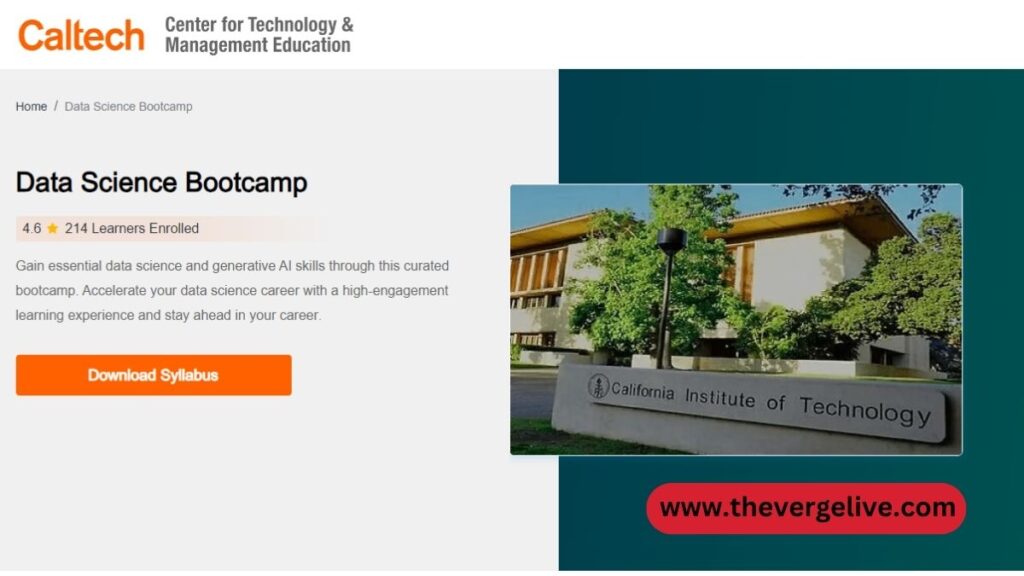In the ever-evolving landscape of data science education, prospective learners are faced with a crucial decision: should they opt for traditional academic courses or dive into the intensive and immersive world of data science bootcamps? This guide aims to comprehensively analyze both avenues, delving into the specifics to help you make an informed choice based on your needs and career goals.
The Rise of Data Science Education
Before we dive into the comparison, let’s set the stage by understanding the broader context of the demand for data science skills. According to the World Economic Forum, data-related jobs are expected to grow by 12% by 2025, with the demand for data analysts, scientists, and specialists soaring1. This surge in demand is propelling more individuals to seek education in data science.
Traditional Courses: The Academic Foundation
1. Structured Learning:
Traditional courses, typically offered by universities, follow a structured curriculum. They provide a deep and comprehensive understanding of data science concepts, starting from the fundamentals and gradually progressing to advanced topics.
2. Academic Recognition:
One significant advantage of traditional courses is the academic recognition they carry. A degree in data science or a related field from a reputable institution can open doors to a wide range of opportunities and is often a requirement for certain roles.
3. Research Opportunities:
Being part of a university setting offers access to research opportunities. Engaging in research projects can deepen your understanding of data science principles and methodologies and provide valuable hands-on experience.
4. Networking:
Traditional courses facilitate networking with professors, researchers, and fellow students. The connections made during your academic journey can be instrumental in your career development.
5. Longer Duration:
Traditional courses usually span longer, often two to four years, allowing for a more gradual and in-depth exploration of the subject matter.
Data Science Bootcamps: The Accelerated Path
1. Intensive Learning:
Bootcamps are known for their intense and immersive learning experiences. They focus on practical, real-world applications and aim to equip participants with the skills needed in the industry.
2. Quick Entry into the Workforce:
The primary goal of bootcamps is to prepare individuals for immediate entry into the workforce. They are designed to impart practical skills directly applicable to industry needs.
3. Industry-Relevant Skills:
Bootcamps often have a more current and industry-specific curriculum. They are updated more frequently to keep up with the rapidly changing landscape of data science technologies and tools.
4. Networking Opportunities:
While the network might be more industry-centric, bootcamps provide opportunities to connect with professionals working in the field. This can be advantageous for job placement and mentorship.
5. Short Duration:
The most distinctive feature of bootcamps is their short duration, typically ranging from a few weeks to a few months. This makes them an attractive option for those looking to upskill quickly.
Industry Trends and Data
1. Demand for Practical Skills:
According to a survey conducted by the Data Science Association, 82% of employers prioritize practical skills over formal education when hiring for data science roles2. This trend aligns with the emphasis that bootcamps place on hands-on learning.
2. Rapid Growth of Bootcamps:
The bootcamp industry has experienced remarkable growth in recent years. According to Course Report, the market size of the coding and bootcamp industry was $603.4 million in 20213. This growth indicates the increasing demand for alternative, faster paths to acquiring technical skills.
3. Diversity of Learners:
Bootcamps attract a diverse range of learners, including those looking to pivot careers, upskill, or add a practical dimension to their academic knowledge. This diversity can enrich the learning experience through varied perspectives.
Making the Right Choice
1. Consider Your Learning Style:
A traditional course might be the right fit if you thrive in a structured academic environment and prefer a gradual deep dive into theoretical concepts. On the other hand, if you learn best by doing and want to enter the workforce quickly, a boot camp could be more suitable.
2. Assess Your Career Goals:
Your career goals play a crucial role in this decision. A traditional course may align better if a degree is a prerequisite for your desired role or if you’re inclined toward research and academia. If immediate entry into the workforce is your priority, a Bootcamps might be the faster route.
3. Evaluate the Curriculum:
Examine the curriculum of the program closely. Ensure that it covers the skills and tools currently in demand in the industry. Traditional courses and boot camps should provide a pathway to acquiring practical skills.
4. Consider Time and Financial Constraints:
Traditional courses often require a more significant time and financial investment. If you have constraints in either of these aspects, a boot camp could be a more feasible option.
5. Explore Hybrid Models:
Some institutions offer hybrid models, combining the depth of traditional courses with the practical focus of boot camps. These programs aim to strike a balance and might be a suitable compromise for some learners.
Conclusion
Ultimately, choosing between a data science Bootcamps and a traditional course boils down to your preferences, career goals, and constraints. Both paths can lead to successful careers in data science, and the right choice depends on finding the alignment between your learning style and industry demands.
As data science evolves, staying updated with industry trends and being adaptable in your learning journey will be key to long-term success. Whether you opt for a traditional course, a boot camp, or a hybrid model, the most crucial factor is a commitment to continuous learning in this dynamic and exciting field.
